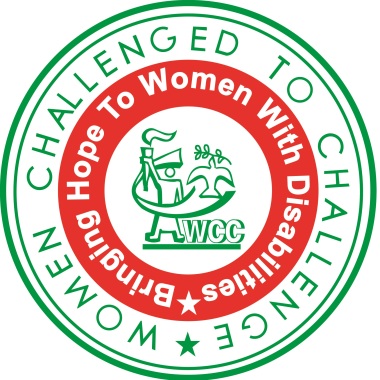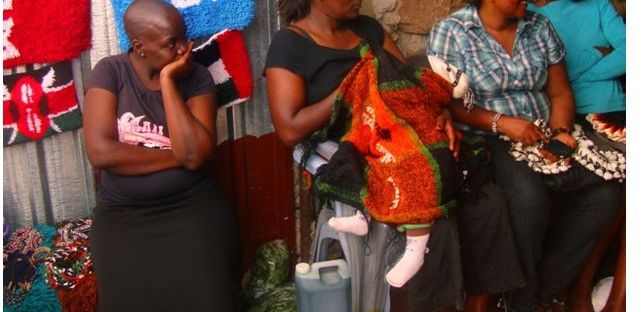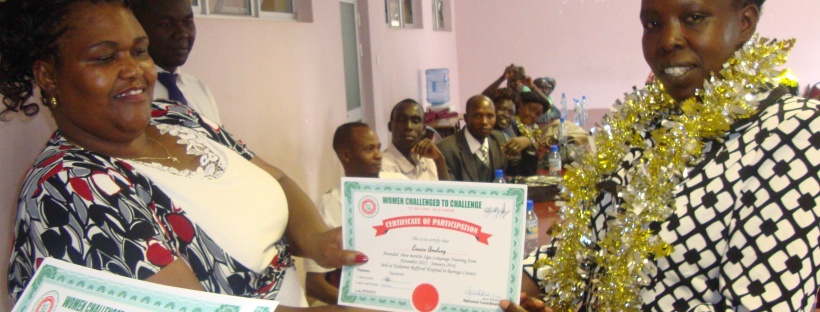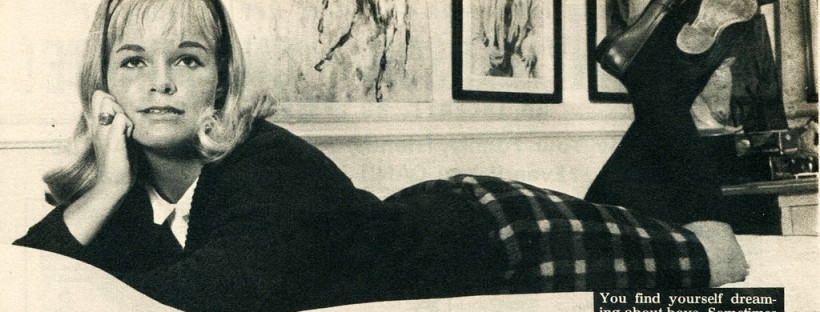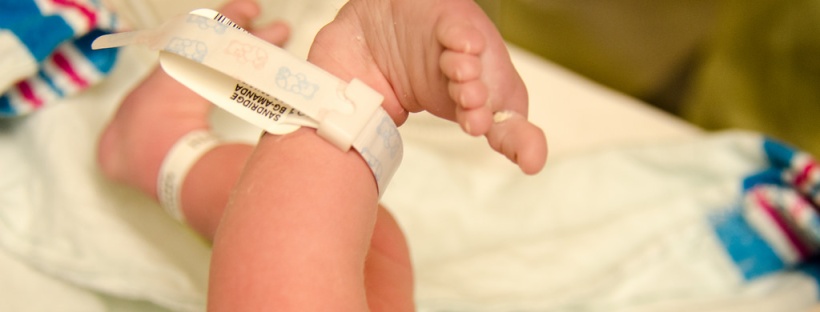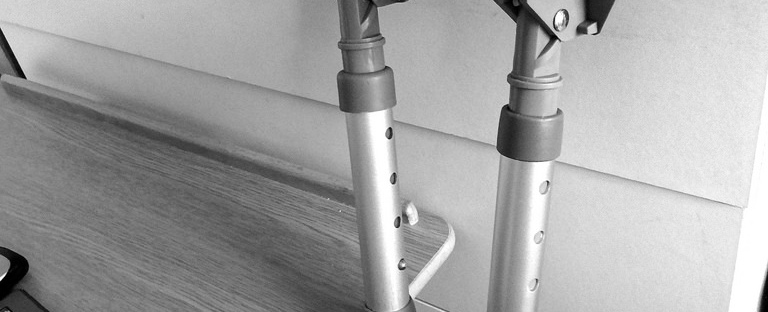From love to death: A tale of domestic violence
Across the world tens of thousands of women and girls are being loved to death.
WCC and Economic Empowerment
It is a sad fact that Women with disabilities are more likely to be the victim of economic hardship than Men with disabilities. It is also true, and the root cause of this poverty, that Women with disabilities are more likely to be illiterate and otherwise unskilled having had their access to education hindered in their youth and discriminated against in their later life. This is wrong, and WCC have taken up this challenge.
Literacy rates among women and girls with disabilities are exceptionally low. Along with this, disabled women are excluded from other employable skills as well. The education of a girl with disability is not a priority in many families. They see no value in investing a girl with a disability and as they often say: ‘No one will employ her anyway’.
This creates a culture of dependency where these women and girls are dependent on family members…
View original post 230 more words
Working with Refugee Women with Disabilities
The refugee workshop took place on 9th and 10th of June 2016 at the Kenya Agricultural Research Institute in Nairobi. Following a conference of Network of African Women with Disabilities held in February 2016, Women Challenged to Challenge (WCC) identified a few gaps among refugee women with disabilities living in Kenya who attended the conference. The gaps were; lack of legal status, lack of guided community integration, low self-esteem, lack of information and access on available services like reproductive health.
As a result, WCC organized a two day workshop whereby we were able to train women on entrepreneurship, reproductive health issues and self-esteem matters. In addition WCC involved personnel from HIAS and UNHCR who educated the refugee women on the services available and how to access the same. All these was made possible through a partnership with the Network of African Women with Disabilities (NAWWD) and Women Refugee Commission (WRC)
Workshop Goal
The man goal was to bring together refugee women with disabilities and help them find assistance to challenges they face as women with disabilities living in a foreign country.
Objectives
- To brainstorm on the needs and challenges of refugee women with disabilities
- Bring together refugee women with disabilities to share their experiences
- Identify gaps in service delivery for refugee women with disabilities
- Identify business needs of refugee women with disabilities
Challenges faced by the refugee women include;
- Lack of documents like mandate
- The waiting time for documents to be approved was too long
- Lack of information on the services available for them and institutions and organization offering the same. E.g. medical services, gender based violence services
- Lack of finances to pay for school fees, rent and medical services
- Self-esteem issues- accepting their disabilities
- Minimal awareness on the procedures of acquiring the proper documents
Recommendations and way forward
- Formation of support groups
- Follow-up on individual issues with HIAS and UNHCR
Equipping Service Providers
It is estimated that 10% of the world population live with disability. This figure clearly gives an indication that persons living with disability are always the minority at any given time. As a result it will be agreed that being the minority comes with a lot of consequences which often work against the individual and more than ever those living in developing countries. In these states, disability mainstreaming is long overdue and it takes commitment and sacrifice from the main stakeholders to ensure the rights of persons with disability have been actualized. Currently the government of Kenya is doing a lot in terms of putting up policies and making sure laws of disability are being enacted.
Women Challenged to Challenge is carrying out immense work to see to it that these minority citizens get their rights; one way of achieving this is by providing basic sign language skills to service providers. In 2015, WCC was able to train a total of 25 service providers from Baringo County in the health, security and education sector; this was made up of nurses, nutrionists, teachers and police officers. This skill will help in offering quality services to persons with hearing impairment. In most cases, a deaf person will not get proper assistance from these institutions just because there is no provision of a sign language interpreter and this in itself infringes the rights of this person. The trainees received certificates at the end of the training and it was indeed encouraging to see them introduce themselves and sing songs in signs.
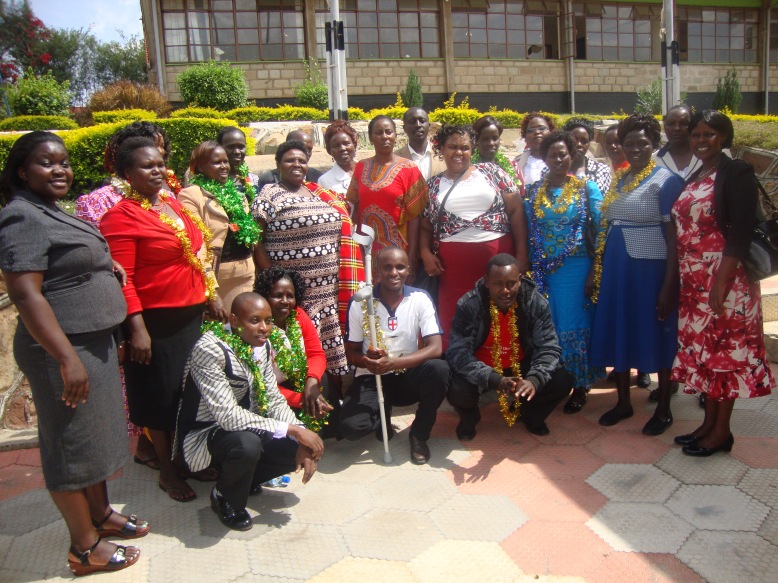
Service Providers trained in sign language-Baringo County
This training is just a drop in the ocean… a lot more can and will be done to ensure that persons with disability particularly women, are able to access quality services as they equally deserve.
Pure Peanut Butter for you!
Since its inception, the goal of WCC has been to promote the lives of women with disabilities through development programs. WCC has come up with Income Generating Activities that have created employment to enable these women improve their livelihoods.
Working with Safaricom
In 2009 the Safaricom Foundation funded the organization with money for the purchase of a motorized marina peanut butter machine. The machine was installed in August 2009.
One woman with disability is fully employed and is in-charge of the production. The profits earned from the sale are saved and members can then borrow it as a loan.
Why you should buy this peanut butter
- Affordability
- No additives
- Cholesterol free
- Natural and nutritious
To get one call-0712223613
Disability and Puberty
The onset of adulthood is not hindered by disability. As the body developed there will come a point where sexual maturity and adolescence is reached. This is a strange and confusing time for all parents and children which is why we must be frank.
Puberty usually begins around the age of 11, though slightly before and later is not too unusual. For boys and girls this means the onset of body hair and of oilier skin. This can mean the twin horrors of body odour and acne might develop but which can be dealt with.
The problem usually associated with boys with disability developing sexually is as they develop and explore their bodies, awkward outbursts of masturbation might erupt. It is healthy to explore the body, but clear boundaries need to be established. There has to be frank discussion between parent, elders, teachers and children over what is and is not acceptable. This must cover the notion of consent as well.
For girls, this issue does also stand and should be discussed. There other concerns for girls, the onset of menstruation needs to be explained as a healthy and normal process and the proper hygenic practices demonstrated.
A concerning practice has developed where disabled girls have had the coil forced upon them to restrict the possibility of pregnancy. This is invasive. Moreover it doesn’t protect the girl from STDs. It is much better to talk to girls about contraception and the mechanisms of sex.
The most important thing is support. This is a difficult time for everyone involved and so we must help each other.
Disability and STDs
The shock that people with disability can and do have sex is often met me incredulity by people who should know better.
This means that people with disabilities are often simply not taught how to have safe sex, nor the reprcussions of having sex. This means that there is a noteable risk for the transmission of STDs. Read this guide about condoms to learn more about safe sex, and how it can be fun.
Just as people with disability aren’t educated it is feasible that their doctor might simply not believe their patient is suffering from an STD. Given that certain diseases only show symptoms once the disease has progressed it is vital to get treatment. There is a stigma attached but many cases are treatable.
Finally WCC has heard of cases where girls were forced into having a coil or other device against their will. This will stop a pregnancy but won’t stop a person with disability catching an unplesant infection. The coil does have a role to play but only alongside other forms of contraception. Rather avoiding the issue of disabled sex it is important to be frank with your children, your parents, friends and lovers about contraception.
Birth and Disability
This is a double pronged issue. There are concerns with women of disability during pregnancy and with giving birth to a child with disability. That first issue is best tackled through two case studies;
WWC heard from one deaf lady the tale of her pregnancy. The woman was enjoying a normal and healthy pregnancy, however, she found it hard trying to interact with the health professionals because they couldn’t communicate with her, and so the lady did become disconnected from medical help. She also said that when the labour did arrive the midwives were particularly unhelpful and actually rude. There were some complications with the birth and a small medical procedure did have to be carried out, the lady was however unsure of what was happening all the while. WCC have been involved in training nurses in sign language, but there is still work to be done.
At the Network of African Women with Disability conference Grace told us about a tragic incident involving a woman with Albinism. Again the lady had enjoyed a normal pregnancy and in this case a straightforward labour. She was delivered of a child with normal levels of melanin. Elsewhere in the hospital a black woman had a child with albinism. The midwives tried to switch these children not grasping the genetics of the situation where is normal and possible for a parents with albinism to have coloured children, the same is true otherwise.
What is clear is that we need further education and awareness about reproductive health and disability, something which WCC is trying to do.
Yet birth involves two parties, mother and child, and we need to be aware of the issues around a disabled baby. It is often the case that a disability may not become apparent immediately or may develop over time. There is a need if your baby is showing signs of a disability to contact your medical officer and talk to them. However, the most important thing to do is love your child and support your child. WCC can help you.
Disability and Sex
Let’s be frank. People with disability have sex. Each disability is, however, different and affects people in different ways and will impact in the bedroom in different ways.
Blindness and Deafness;
These do not pose a physical challenge to the actual act. However, it may make it more difficult to convey needs and desires.
Albinism:
There is no risk of catching Albinism from sexual contact, and the only impediment is societal prejudice.
Physical Disability:
Romina Puma has said it best:
“I know what kind of positions I like and which ones I can perform in for longer with my impairment. Just because you’re disabled it doesn’t mean that part of your life is over. I can have sex normally. Obviously, I don’t have the strength to do certain positions for a long time – but who does?
Sex is awkward for everyone – so it’s important to be open with your partner. If they understand how to pleasure you, it will help avoid people feeling awkward.”
Mental Disability:
Depending on the level of mental impairment there is an important issue with consent. The medical profession has had to develop careful safeguards to perform procedures, and so it is particularly important that consent and what that means is discussed from a young age.
People with disability can also be sexy. Look at this photo shoot assisted by the UK charity Scope.
